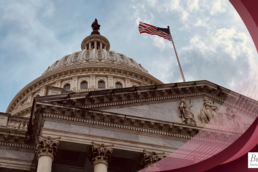Since 1990, the Immigration and Nationality Act (INA) has provided that certain individuals eligible under the Employment-based, second preference (EB-2) immigrant visa classification may obtain a waiver of the job offer requirement if the U.S. Citizenship and Immigration Services (USCIS) deems such waiver to be in the “national interest.” This waiver provision applies only to the second preference (EB-2) classification for members of the professions holding advanced degrees and persons of exceptional ability. This waiver of the job offer is known as the “National Interest Waiver” (NIW).
On January 21, 2022, USCIS provided updated guidance regarding the adjudication of requests for a NIW regarding job offer and labor certification requirements for certain advanced degree professionals and individuals of exceptional ability. The guidance includes the unique considerations for persons with advanced degrees in science, technology, engineering, and math (STEM) fields and entrepreneurs. In addition, it emphasizes the significance of letters from governmental and quasi-governmental entities. Furthermore, it promotes effective and efficient processing of benefits consistent with President Biden’s Executive Order 14012, Restoring Faith in Our Legal Immigration Systems and Strengthening Integration and Inclusion Efforts for New Americans.
NIW for the EB-2 Classification
An employer seeking to hire a noncitizen must generally obtain a permanent labor certification from the Department of Labor (DOL) that proves there are no qualified U.S. workers for the position they are seeking and that their employment will not adversely affect similarly employed U.S. workers. The noncitizen may, however, seek a waiver of a job offer, and of the labor certification, if it is in the interest of the United States.
A petition filed with a request for a NIW on behalf of a person does not need to be supported by a job offer; therefore, the person may file as a self-petitioner. Individuals seeking a national interest waiver must show evidence of an advanced degree or exceptional ability and must also meet three factors that USCIS uses to determine, in its discretion, whether it is in the national interest that USCIS waive the requirement of a job offer, and thus the labor certification.
Key Considerations for a NIW for STEM Graduates
In its guidance, USCIS outlined specific evidentiary considerations for individuals with advanced degrees in STEM; however, these considerations may apply in non-STEM endeavors where the petitioner demonstrates that such considerations are applicable. The three factors USCIS considers for a NIW are whether:
- The person’s proposed endeavor has both substantial merit and national importance;
- The person is well positioned to advance the proposed endeavor; and
- It would be beneficial to the United States to waive the job offer and thus the permanent labor certification requirements.
With respect to the first factor, as in all cases, the evidence must demonstrate that a STEM endeavor has both substantial merit and national importance. Many proposed endeavors that aim to advance STEM technologies and research, whether in academic or industry settings, not only have substantial merit in relation to U.S. science and technology interests, but also have sufficiently broad potential implications to demonstrate national importance. On the other hand, while proposed classroom teaching activities in STEM, for example, may have substantial merit in relation to U.S. educational interests, such activities, by themselves, generally are not indicative of an impact in the field of STEM education more broadly, and therefore generally would not establish their national importance.
With respect to the second factor, the individual’s education and skillset are relevant to whether the individual is well positioned to advance the endeavor. USCIS considers an advanced degree, particularly a Doctor of Philosophy (Ph.D.), in a STEM field tied to the proposed endeavor and related to work furthering a critical and emerging technology or other STEM area important to U.S. competitiveness or national security, an especially positive factor to be considered along with other evidence for purposes of the assessment under the second factor. Persons with a Ph.D. in a STEM field, as well as certain other persons with advanced STEM degrees relating to the proposed endeavor, have scientific knowledge in a narrow STEM area since doctoral dissertations and some master’s theses concentrate on a particularized subject matter. USCIS will then consider whether that specific STEM area relates to the proposed endeavor. Even when the area of concentration is in a theoretical STEM area (theoretical mathematics or physics, for example), it may further U.S. competitiveness or national security as described in the proposed endeavor. However, possessing a degree alone is not sufficient; additional evidence, including letters from government agencies, is crucial to demonstrate that a person is well positioned to advance the proposed endeavor.
Finally, with respect to the third factor, the petitioner must establish that factors in favor of granting the waiver outweigh those that support the requirement of a job offer and thus a labor certification. In evaluating the third factor and whether the United States may benefit from the individual’s entry, USCIS considers the following combination of facts contained in the record to be a strong positive factor:
- The person possesses an advanced STEM degree, particularly a Ph.D.;
- The person will be engaged in work furthering a critical and emerging technology or other STEM area important to U.S. competitiveness; and
- The person is well positioned to advance the proposed STEM endeavor of national importance.
The potential benefits to U.S. national security or economic competitiveness, along with support from U.S. government agencies, add significant weight to the petitioner’s case.
Significance of Letters from Governmental Entities
In its guidance, USCIS emphasizes the significance of letters from interested government agencies and quasi-governmental entities in the United States. While not required, such letters can be helpful evidence and, depending on the contents of the letters, can be relevant to all three factors. Specifically, letters from an interested government agency or quasi-governmental entity could prove favorable for purposes of the first factor if, for example, they establish that the agency or entity has expertise in the proposed endeavor and that the proposed STEM endeavor promises to advance a critical and emerging technology or is otherwise important for purposes of maintaining the United States’ technological prominence.
Detailed letters of government or quasi-governmental interest that provide relevant information about how well-positioned the person is to advance the endeavor are valuable for purposes of assessing the second factor. Finally, an interested government agency or quasi-governmental entity can help explain how granting the waiver may outweigh the benefits of the job offer and labor certification requirement by explaining a particular urgency or detailing how the United States would benefit from the prospective noncitizen’s contributions, even if other U.S. workers are available.
Conclusion
The USCIS’s updated guidance promotes efficient and effective benefit processing as USCIS reviews requests for NIWs. USCIS recognizes the importance of progress in STEM fields and the essential role of persons with advanced STEM degrees in fostering this progress, especially in focused critical and emerging technologies or other STEM areas important to U.S. competitiveness or national security. By specifically addressing the needs of STEM graduates, the guidance clarifies and facilitates the process for these individuals to embark on a pathway to obtain lawful permanent resident status in the United States.
If you have any questions about the NIW for the EB-2 classification, contact our office today to set up a consultation with one of our attorneys!
Related Posts
January 29, 2026
Webinar “Head South: How to Invest in the U.S.”
Ready to have Berardi on your side?
Whether you’re a business looking to hire or a professional hoping to relocate, immigration law can be complicated. But you don’t have to do it alone. Put our experience to work for you.



